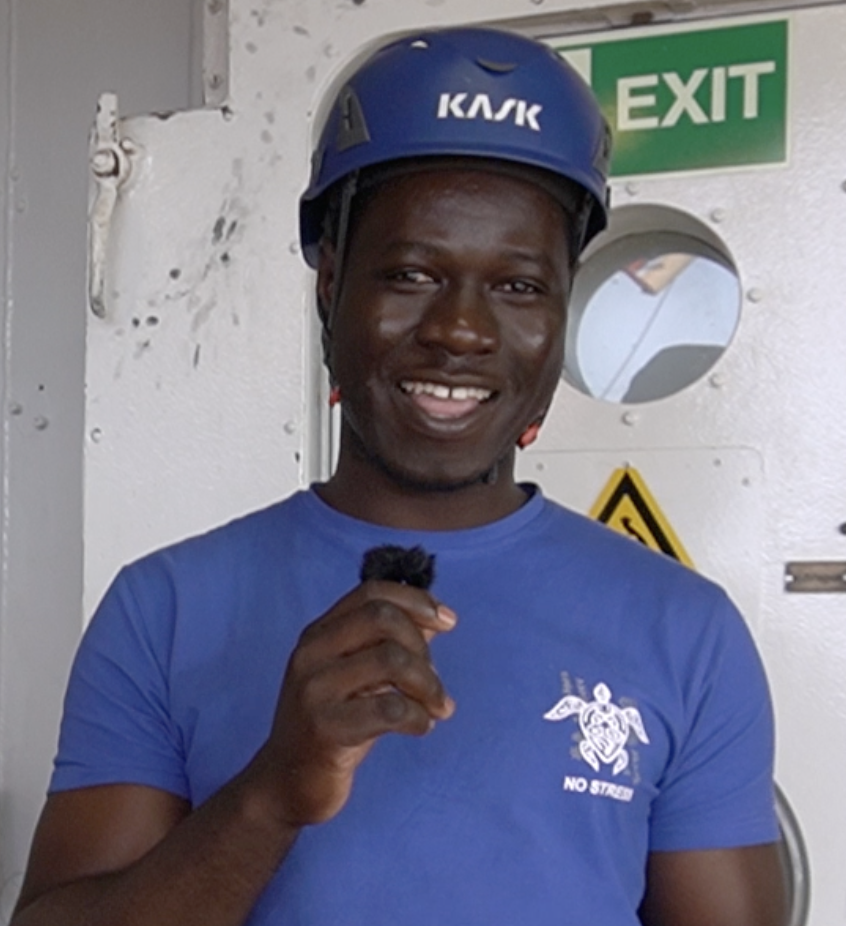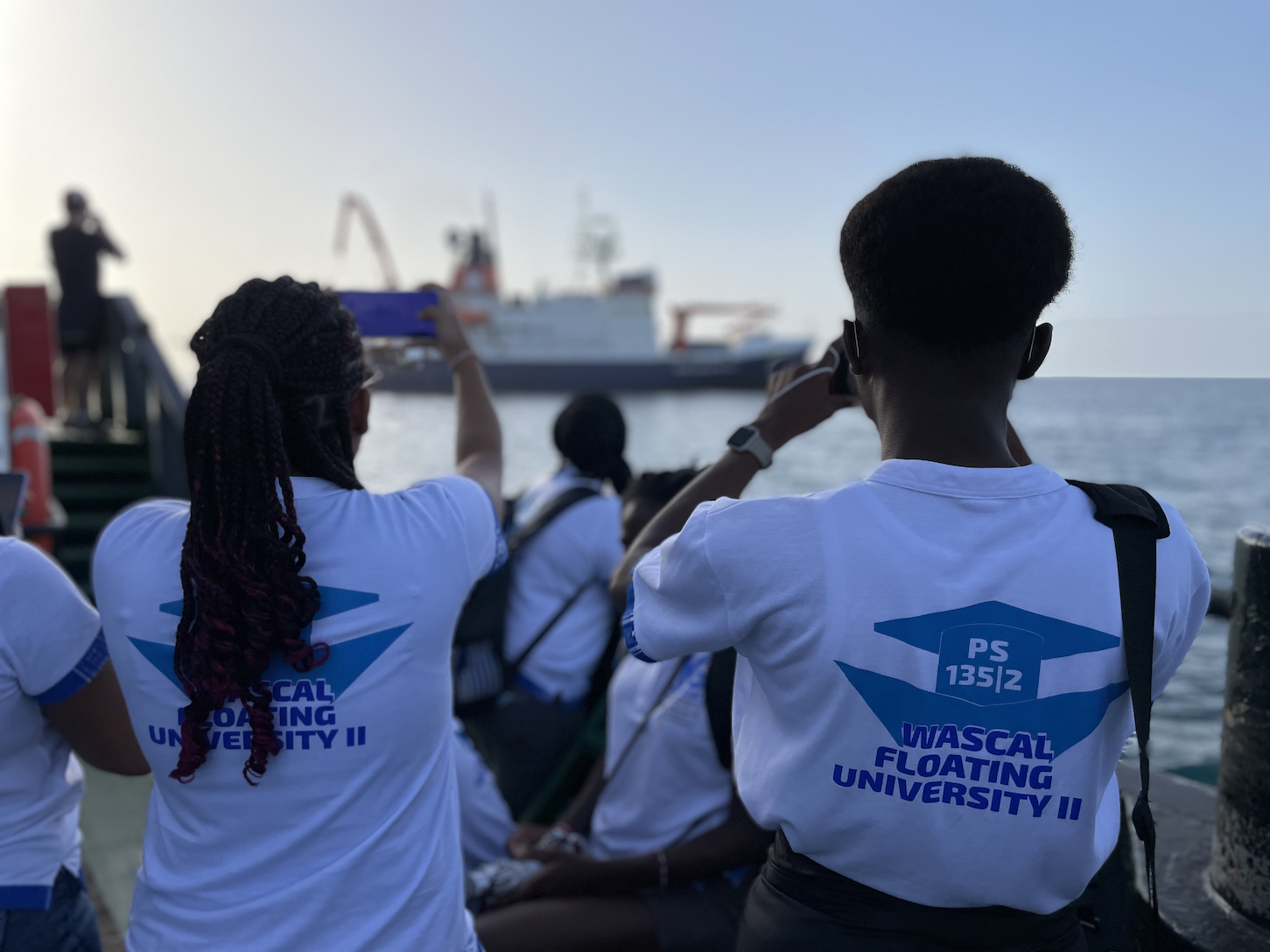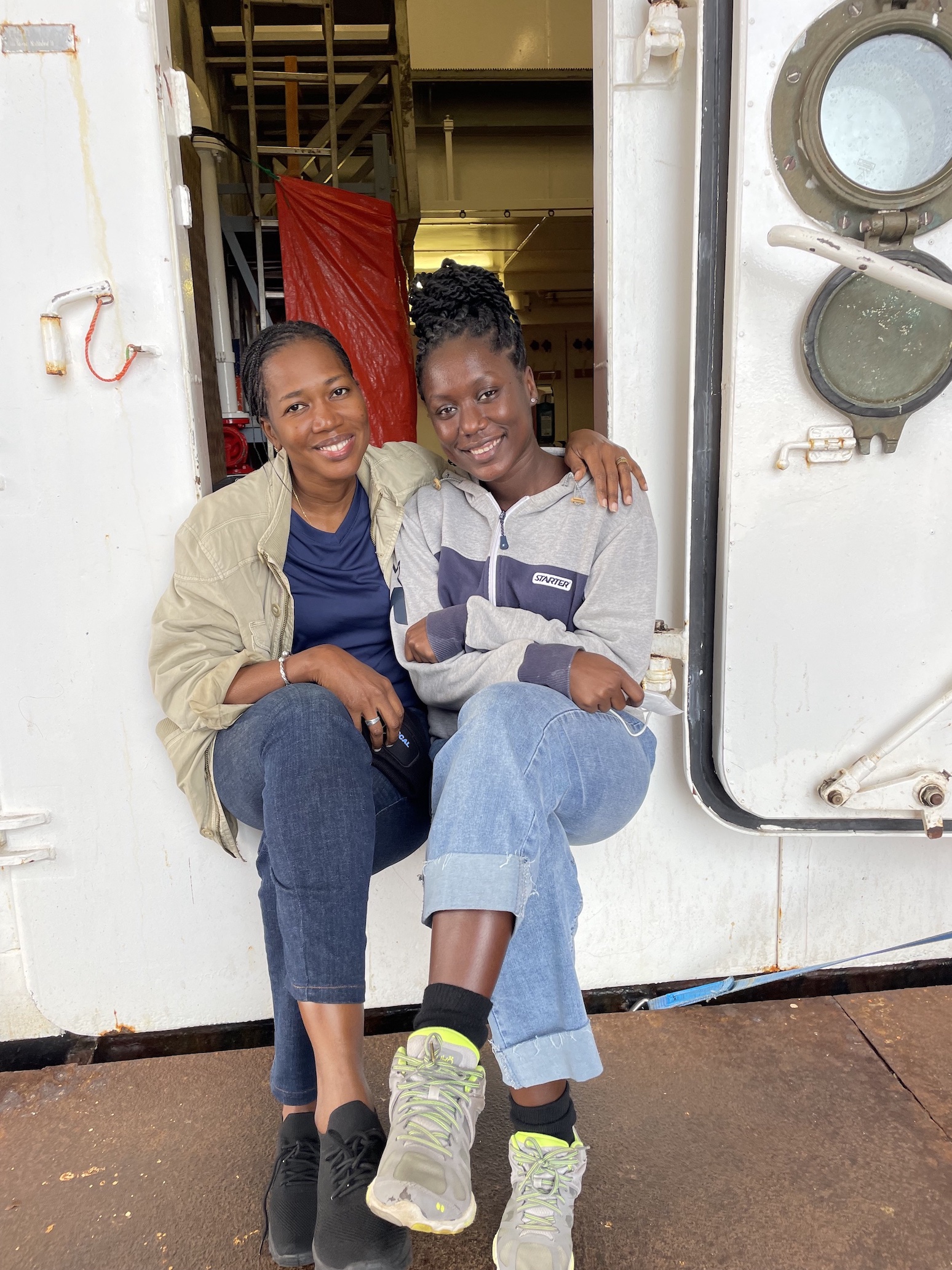On a rolling ship, fighting seasickness, even finding their way around the cavernous Polarstern can seem a challenge. The first two days have been spent learning the rules on board – and here are many of them! “There’s a strict hierarchy on board, with all the crew having their own tasks. There’s even a correct way to make the bed!” says Osvaldina, a WASCAL student from Cabo Verde. “I’ve been learning a lot that I couldn’t have on land – what it means to be on station and take samples on a moving ship” she adds. Amie, a student from The Gambia agrees: “In the Master’s programme we’ve gained theoretical knowledge, but its application to measuring and observing at sea is an invaluable experience”. The personal experience can be intense: “It’s really emotional, being in this closed environment with so many colleagues and friends, and interacting with everyone daily. I can’t really express it” she admits.
Amadou, a student from Senegal, is taking a break on the working deck, having carefully chosen the pivotal point at aft that rolls the least – on the second day at sea, he is still finding his sea legs! He spent the morning filling bottles from the CTD to measure oxygen content through the water column. He thinks for a moment “Going through the whole process of getting and analyzing a single sample, I really understand now where the data comes from, and appreciate what goes into each measurement in global data sets. It’s quite amazing”. That’s oceanography – years of planning, weeks of ship’s time and days of sea sickness culminate in hours of careful measurements for a few, valuable data points.
That’s not something you learn in the lab at home!

Avan Antia,
PS135/2 Participant
Kiel University

